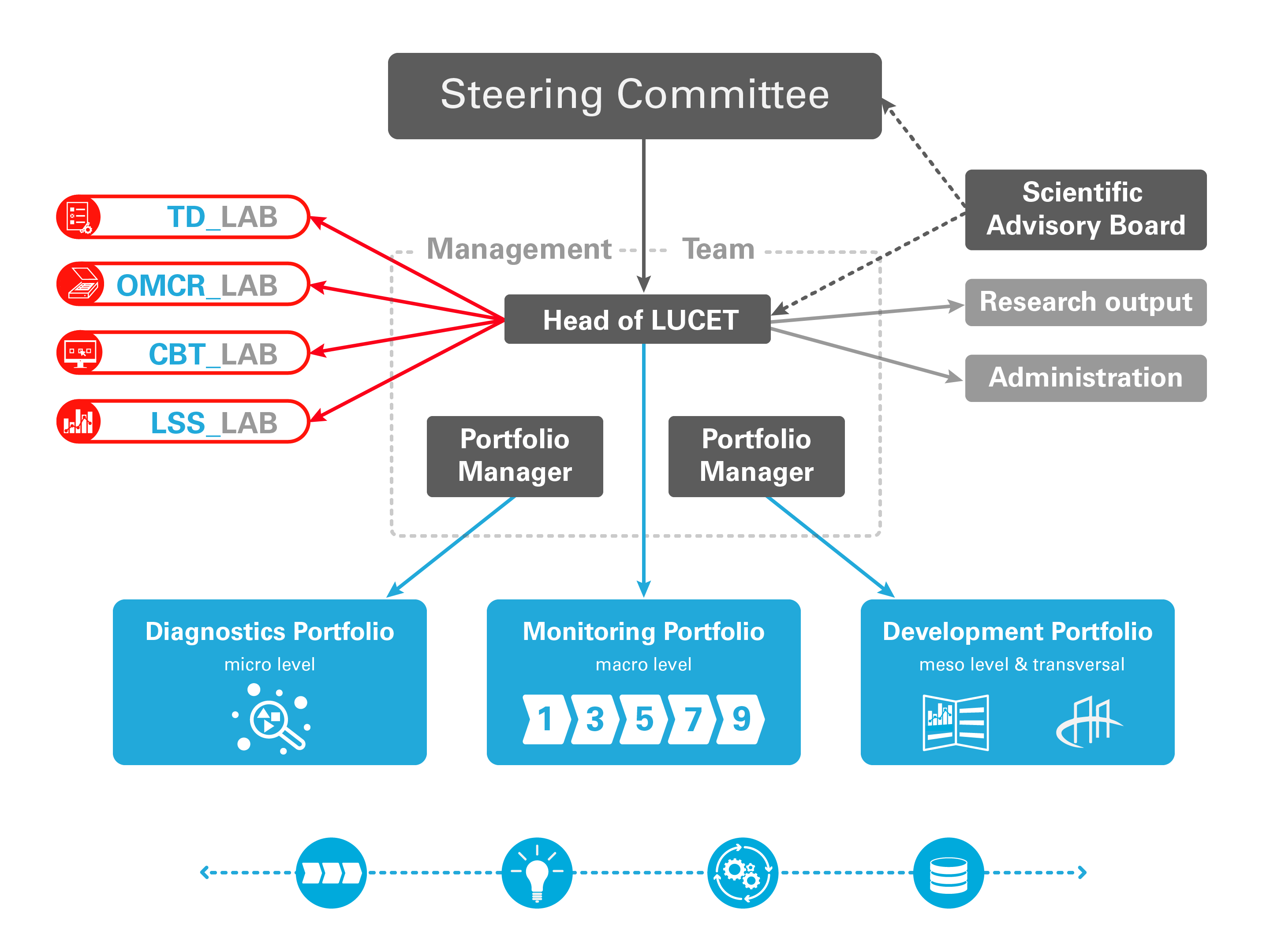Creation of the Centre
“outstanding and comparable to excellent educational research facilities in leading countries”
(external research evaluation verdict, 2017)
International large-scale assessments (e.g., the OECD’s PISA studies) have repeatedly shown that many educational systems in modern societies—Luxembourg being no exception—struggle with the adequate handling of increasingly diverse student populations. Understanding and learning how to effectively deal with highly heterogeneous groups of learners (i.e., solving the equation of providing equal opportunities for success to everybody, independent of her/his socioeconomic, sociocultural and linguistic background) can be considered Luxembourg’s biggest educational—and quite possibly also societal—challenge of today. The increasing diversity, a logical consequence of the demographic change that comes along with a globalized world, is not only a domestic issue. However, due to several national specificities (e.g., relatively small sized, open borders, situated in the heart of Europe, traditionally multilingual, with an economy model built on and relying on immigration) demographic change may just occur slightly faster in the Grand Duchy than it does abroad. Accordingly, Luxembourg provides a unique educational and societal learning environment, a living laboratory so to speak, that is prototypical and anticipatory for the demographic changes and the related challenges that geographically and metaphorically neighbouring countries may very likely face over the next decades. In other words, solving Luxembourg’s educational and societal challenges of today equals solving international educational and societal challenges of tomorrow.
Emerging from the Luxembourg school monitoring project Épreuves Standardisées (ÉpStan), a Luxembourg-Ministry-of-Education-funded University-of-Luxembourg-based long-term research enterprise (2007-2014) established to scientifically tackle the aforementioned educational challenges, the 2014-2017 Four-Year Contract (Contrat d’Établissement Pluriannuel entre l’État et l’Université du Luxembourg) explicitly foresaw a structural integration of the school monitoring programme in the University in the form of a Faculty-based research and transfer centre. This sui generis centre, the LUCET, was jointly launched by the University and the Ministry in July 2014.
The LUCET model proved rapidly successful, and its success story was already explicitly acknowledged in the 2016 external research evaluation of the University of Luxembourg. In their 2017 evaluation report, the international experts stated that they assessed the LUCET’s performance as “outstanding and comparable to excellent educational research facilities in leading countries.” It was further noted that “the transfer from science to practice is in general better implemented […] than in other international institutions known to the experts”. Finally, the experts also explicitly highlighted “the impressive amount of available cross-sectional and longitudinal data in the LUCET”.
As a result of the encouraging external evaluation verdict, but also in order to emphasize educational research’s national relevance at the University, enhance visibility, maximize synergies, counteract fragmentation of the field, reduce bureaucracy, and facilitate communication with internal and external partners and stakeholders alike, the University’s Board of Governors decided in July 2018 to extend LUCET’s mission portfolio, and make it the institutional home of the triennial report on national education, the so-called Bildungsbericht. Additional new LUCET missions include the setup of a single point-of-contact between the Luxembourg education system and University-of-Luxembourg-based educational research, and the facilitation of school and classroom development in national education.
academic freedom, shared governance and institutionalized quality assurance
As a sub-structure of the Faculty, LUCET is an integral part of the University of Luxembourg. Consequently, LUCET enjoys the academic freedom guaranteed by Art. 49 of the 2018 revised University law.
LUCET governance is assured through a Steering Committee comprised of University and Ministerial stakeholders. The Steering Committee primarily reviews and approves the centre’s working plan, and the Head of LUCET reports directly to the Committee. University and Ministries have equal representation, and hold equal voting rights in the Committee. Importantly, the Steering Committee is chaired by the President of the University or a designated Vice-President, who furthermore holds a casting vote to ensure LUCET’s legally guaranteed academic freedom at all times.
In order to assure LUCET’s scientific state-of-the-art lastingly, the Head of LUCET and the Steering Committee are advised on a regular basis by a Scientific Advisory Board comprised of renowned national and international experts in educational testing, (contractual) educational research and educational quality management.
